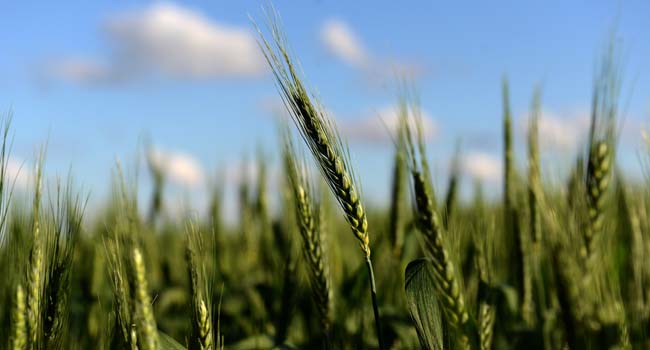
Eitan ABRAMOVICH / AFP
Argentina has become the first country to approve genetically modified wheat, the country’s national scientific commission announced Thursday.
The commission said in a statement released in Buenos Aires that it had approved a drought-resistant variety of wheat in the world’s fourth-largest exporter of the crop.
“This is the first approval in the world for drought-tolerant genetic transformation in wheat,” the National Commission for Science and Technology (CONICET) said in a statement.
“In order to be marketed in Argentina, the genetic transformation of the wheat must be approved in Brazil, Argentina’s main historical wheat market,” CONICET said.
Some 45 percent of Argentina’s wheat exports in 2019 went to Brazil. Other key markets are Indonesia, Chile and Kenya.
The formal government approval is due to be published on Thursday or Friday.
The drought-resistant HB4 wheat variety was developed by Argentine biotechnology company Bioceres, working with the National University and CONICET.
“Now we must go out into the world and convince people that this is super good and be able to generate markets for this wheat, which represents an evolutionary leap,” said Bioceres chief Federico Trucco.
Trucco admitted that winning approval from Brazil may be difficult.
“The first country we have to convince is Brazil, and it may be hard work,” he said.
AFP




